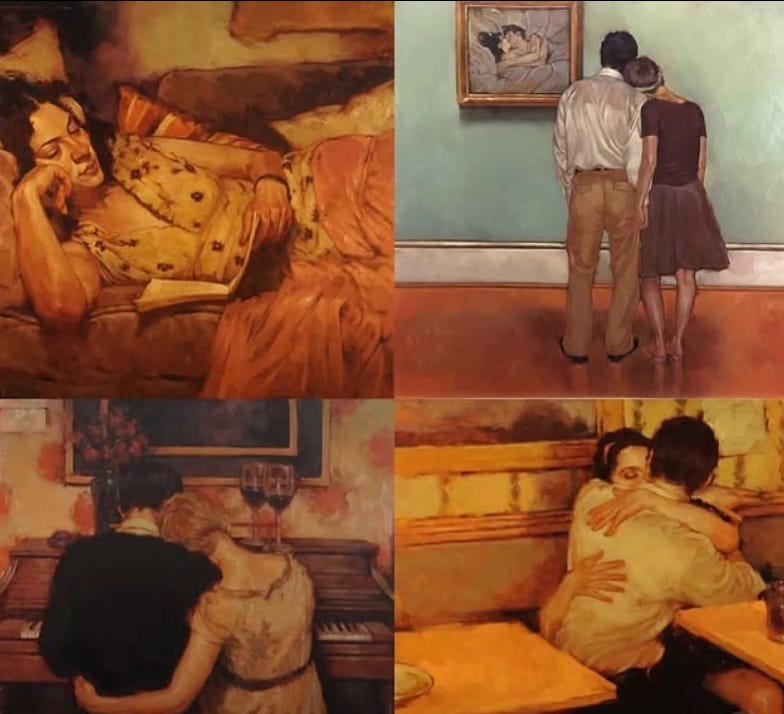#175 Love Is a Ritual—And So Is Poetry
Love, as it turns out, has always longed to be written down.
Dearest.
What does first love mean to you?
Is it a childhood crush, the scent of old books in a quiet library, or a song that still tugs at your heartstrings?
Is it a ritual—a cup of chai brewed just the way they like it, a shared glance across a crowded room, a letter never sent?
At our recent Love Poetry Workshop, we ventured into the very essence of love, tracing its evolution from ancient Mesopotamian hymns to modern free verse.
We wrote. We remembered. We uncovered the ways love has shaped us—through time, through words, through rituals.
The First Love Poem: A Whisper from 4,000 Years Ago
(Source: https://www.nypl.org/blog/2019/05/03/evolution-love-poem)
Love, as it turns out, has always longed to be written down.
We read The Love Song for Shu-Sin, a poem inscribed in cuneiform nearly 4,000 years ago.
It was more than a love poem—it was a ritual, a sacred vow where a king and a goddess intertwined, where love, power, and divinity were inseparable.
The bride’s voice trembles on the words:
"You have captivated me, let me stand tremblingly before you.
Bridegroom, I would be taken by you to the bedchamber."
Love, in those times, was not just a feeling. It was a duty. A blessing. A promise made not just between lovers, but to the gods themselves.
Can Love Exist Without Ritual?
As we moved forward in time, we asked ourselves: Do rituals give love meaning, or does love breathe life into rituals?

We explored the small ceremonies that define our own love stories—an old playlist that transports us back in time, the way someone always remembers to refill the water jug before bed, the silent prayer whispered before a first date.
And then we considered absence—what would love feel like without these rituals? Would it be freer, or would it fade without something to anchor it?
Love in Every Era, Every Form
Love poetry has never ceased to exist, only to transform.
As Tim Hancock notes, "Different civilizations will each offer their own culturally determined perspective on love."
From the structured devotion of ancient verse to the raw vulnerability of modern poetry, love has found new ways to be spoken.
We read the words of Wendy Cope, Ada Limón, Warsan Shire, and Ocean Vuong—poets who remind us that love is not just grand declarations, but also stolen glances, quiet grief, and the courage to say: I am here. I feel this.
What Will You Write Next?
The magic of the workshop was in the discovery—that love, whether ancient or modern, is something we all carry. And next time, we want you to be a part of it.
So when the next Nook Poetry Workshop comes around, bring your stories. Bring your heart, your rituals, your unanswered questions. Let’s write them down together.
Because love—like poetry—is meant to be shared.
Read this beauty created by Aishwarya during the workshop:
If my newsletter has brought you delight, then you may make a contribution via GPay or UPI to support me and show The Nook some love here: riya.roy6@axisbank
or,
See you next Sunday,
Subscribe to The Nook






